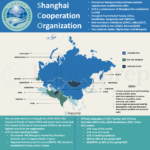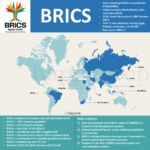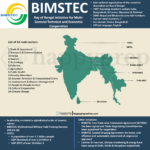Interjections in English
Interjections in English
Introduction
Have you ever said “Wow!” when you were surprised or “Oops!” when you made a mistake? These words express sudden emotions and are called interjections.
Interjections are a unique part of speech that help us show feelings, emotions, or reactions in a sentence. They are usually short words or phrases that stand alone or appear at the beginning of a sentence.
What is an Interjection?
An interjection is a word or phrase that expresses a strong feeling or sudden reaction. It is not grammatically connected to other parts of the sentence but adds emotion or emphasis.
Examples of Interjections in Sentences:
- Wow! This view is amazing.
- Oh no! I forgot my homework.
- Oops! I dropped my phone.
Note: Interjections are often followed by an exclamation mark (!) when expressing strong emotions or a comma (,) when used in a mild tone.
Types of Interjections
Interjections can be classified based on the emotion or reaction they express
Interjections for Greetings
These interjections are used to greet someone or express good wishes.
Common Examples:
- Hello! How are you?
- Hi! Nice to see you.
- Hey! What’s up?
- Goodbye! See you soon.
Interjections for Joy and Happiness
These interjections express happiness, excitement, or delight.
Common Examples:
- Wow! You won the game!
- Yay! We are going on a trip.
- Hooray! Our team won the match.
- Bravo! That was an excellent performance.
Interjections for Surprise
These interjections show shock, amazement, or disbelief.
Common Examples:
- Oh! I didn’t expect to see you here.
- What! Are you serious?
- Really? You got 100 marks?
- Whoa! That was a close call!
Interjections for Pain and Sadness
These interjections express grief, sorrow, or pain.
Common Examples:
- Ouch! That hurt!
- Alas! The old man passed away.
- Oh no! I lost my wallet.
- Sigh! I wish I had studied harder.
Interjections for Disgust
These interjections express dislike, annoyance, or disgust.
Common Examples:
- Ugh! This food tastes awful.
- Yuck! I don’t like this smell.
- Ew! That’s gross!
- Phew! That was a tiring day.
Interjections for Attention and Call
These interjections help to get someone’s attention.
Common Examples:
- Hey! Listen to me.
- Excuse me! Could you help me?
- Look! There’s a rainbow.
- Behold! The king arrives.
Interjections for Agreement and Approval
These interjections show agreement, approval, or encouragement.
Common Examples:
- Yes! I will join you.
- Indeed! That’s a great idea.
- Well done! You did an amazing job.
- Right! I completely agree with you.
Interjections for Doubt and Hesitation
These interjections show uncertainty, hesitation, or confusion.
Common Examples:
- Um… I am not sure.
- Hmm… Let me think about it.
- Er… I forgot what I was going to say.
- Uh-oh! Something went wrong.
Quick Links
Want to read some more articles?
-
 Shanghai Cooperation Organization (SCO): Origin, Members, Facts, etc for UPSC and other exams
Shanghai Cooperation Organization (SCO): Origin, Members, Facts, etc for UPSC and other exams -
 BRICS: Origin, members and others for UPSC, PSC & other exams
BRICS: Origin, members and others for UPSC, PSC & other exams -
 BIMSTEC for UPSC: Origin, Members & More
BIMSTEC for UPSC: Origin, Members & More -
 General Science for Competitive exams: UPSC, PSC, APFC, EO-AO, SSC, etc
General Science for Competitive exams: UPSC, PSC, APFC, EO-AO, SSC, etc -
 THE TRADE UNIONS ACT, 1926 for UPSC EPFO APFC/EO-AO, ALC, and Other exams
THE TRADE UNIONS ACT, 1926 for UPSC EPFO APFC/EO-AO, ALC, and Other exams -
 Understanding Macroenvironment: Marketing Environment in Principles of Marketing
Understanding Macroenvironment: Marketing Environment in Principles of Marketing -
 Understanding Microenvironment: Marketing Environment in Principles of Marketing
Understanding Microenvironment: Marketing Environment in Principles of Marketing -
Interjections in English
-
Conjunctions in English
Recruitment notifications update!
-
Recruitment 2025: Recruitment for Teaching Staff in The School of Planning and Architecture, New Delhi - Vacancy, Posts, Grade Pay, etc
-
Recruitment 2025: Vacancies in Inter-University Centre for Astronomy and Astrophysics (IUCAA)
-
Recruitment 2025: Recruitment on Deputation basis in National Anti Doping Agency (NADA)
-
Recruitment 2025: Various vacancies in Artificial Limbs Manufacturing Corporation of India (ALIMCO)
-
Recruitment 2025: Various vacancies in Land Ports Authority of India
Copyright© 2024 | All rights reserved | Made in India